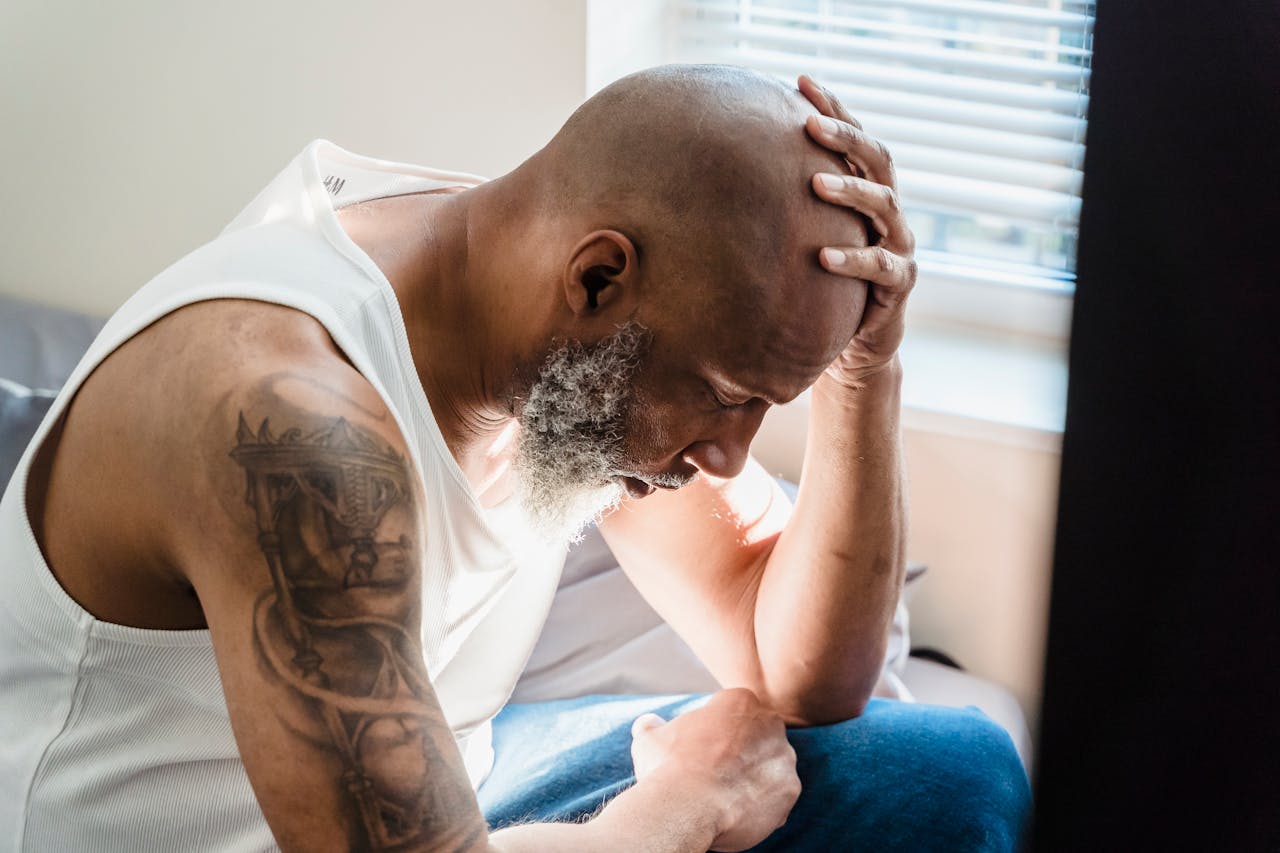Socializing is a key part of living a happy and fulfilling life, but for many older men, it becomes less of a priority as they age. While the reasons vary, they often stem from physical, emotional, or societal challenges. If you have an older man in your life who seems to be retreating from the world, understanding what’s holding him back can help you find ways to encourage him to reconnect. Here are 13 common reasons older men tend to avoid socializing and practical ways to help them step back into the social scene.
1. Health Problems Get in the Way
As men age, health issues like chronic pain, mobility challenges, or hearing loss can make socializing feel like an uphill battle. The fear of being judged or not being able to keep up with conversations can lead to isolation. To help, suggest events that cater to their specific needs, like senior-friendly yoga classes or casual coffee meetups. Showing empathy for their struggles can go a long way in easing their anxiety about socializing.
2. Losing Friends Takes an Emotional Toll
Outliving close friends is a harsh reality many older men face. The grief and loneliness that follow can make the idea of forming new friendships feel overwhelming. Encourage them to honor their memories while gently introducing them to new social opportunities, such as joining a local club or attending support groups where they can connect with others who’ve faced similar losses.
3. Retirement Can Feel Lonely
Retirement is supposed to be a time of relaxation, but for many men, it also means losing the camaraderie of coworkers. Without the daily interactions they were used to, loneliness can creep in. Help them find new routines by encouraging volunteer work, joining hobby-based groups, or even taking up part-time work to regain that sense of connection.
4. Fear of Rejection Is Real
No one likes to feel rejected, and older men are no exception. Years of not actively socializing can make them fear they won’t fit in or be accepted. Help them start small by inviting them to low-pressure gatherings with familiar faces. Building confidence through positive experiences can make stepping out into new social circles less intimidating.
5. Mental Health Often Goes Unaddressed
Depression and anxiety can be silent barriers to socializing, especially for older men who may not recognize or admit to these struggles. If you notice signs of withdrawal or sadness, have an open and supportive conversation. Encourage them to seek professional help or join activities that boost mental health, like exercise classes or art therapy.
6. Old-School Attitudes About Emotions
Many older men grew up in a time when expressing emotions or seeking social support was considered a weakness. This “tough guy” mindset can make them reluctant to open up or seek companionship. Encourage them to explore modern, inclusive environments like book clubs or hobby groups, where sharing ideas and experiences is celebrated, not judged.
7. Money Worries Hold Them Back
Socializing can sometimes feel like a luxury, especially for men on a fixed income. Outings like dining at restaurants or traveling may feel out of reach. Show them that connection doesn’t have to come with a price tag. Suggest free activities like walking groups, community events, or game nights at home to make socializing more accessible.
8. Cognitive Decline Makes Things Harder
Memory issues or early signs of dementia can make social situations confusing and stressful. If this is a concern, focus on creating safe and comfortable opportunities for interaction. Activities like puzzles, gardening, or music therapy can provide a sense of connection without overwhelming them.
9. Losing a Partner Changes Everything
For many older men, their spouse or partner was their main source of emotional support and companionship. Losing them can create a void that feels impossible to fill. Encourage them to join widowers’ groups or take part in activities where they can share their feelings and rebuild their social lives with others who understand their pain.
10. Transportation Challenges Limit Their Options
Not being able to drive or having limited access to transportation can make attending social events feel impossible. Help by arranging rides through family, friends, or community services. Even better, bring the socializing to them by hosting small gatherings at home. Removing logistical barriers can make all the difference.
11. Feeling a Lack of Purpose
When work and family responsibilities fade, many older men struggle with finding purpose. This lack of direction can lead to social withdrawal. Encourage them to explore volunteering, mentoring younger generations, or picking up a new hobby. These activities not only provide a sense of fulfillment but also open doors to new friendships.
12. Technology Feels Intimidating
While technology makes staying connected easier for many, it can feel like a foreign language to older men who didn’t grow up with smartphones and social media. Offer to teach them how to use apps like Zoom or Facebook to reconnect with old friends or join online communities. Once they get the hang of it, they might find that staying social is just a click away.
13. Change Feels Scary
Stepping out of a comfort zone is tough at any age, but for older men, it can feel downright terrifying. They may cling to familiar routines, avoiding new experiences altogether. Help them ease into change by introducing them to small, manageable social activities. A casual weekly coffee meetup or a friendly game night can be the first step toward broader social engagement.
Final Thoughts
Older men may face unique challenges when it comes to socializing, but with patience and understanding, you can help them reconnect with the world around them. Whether it’s addressing health concerns, introducing them to new hobbies, or simply offering a listening ear, your efforts can make a lasting impact. Social connections are vital for emotional and physical well-being, so don’t underestimate the power of small steps to bring them back into the fold. Encourage the older men in your life to embrace the joy of connection—it’s never too late to build meaningful relationships and enjoy life to the fullest.















